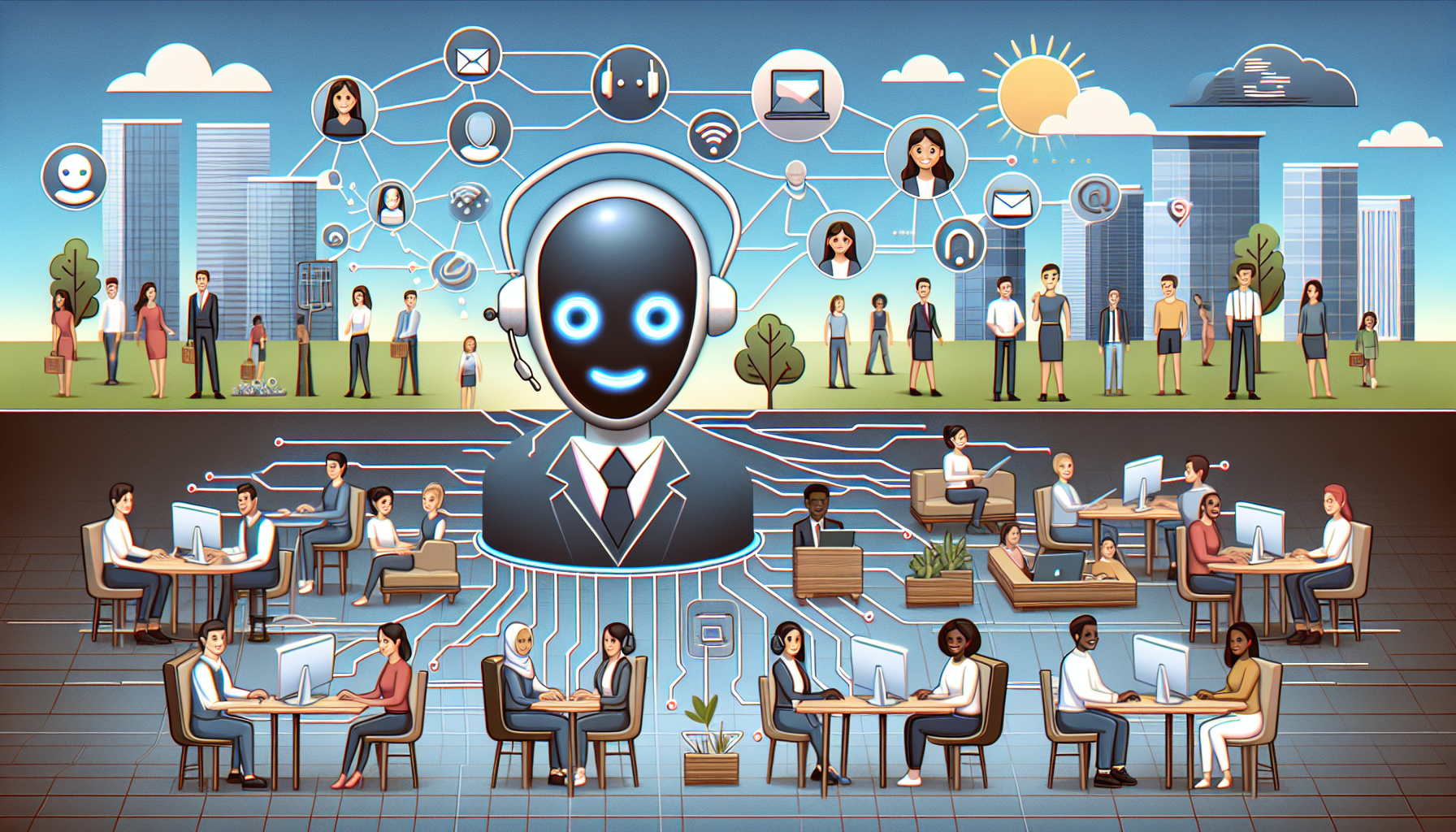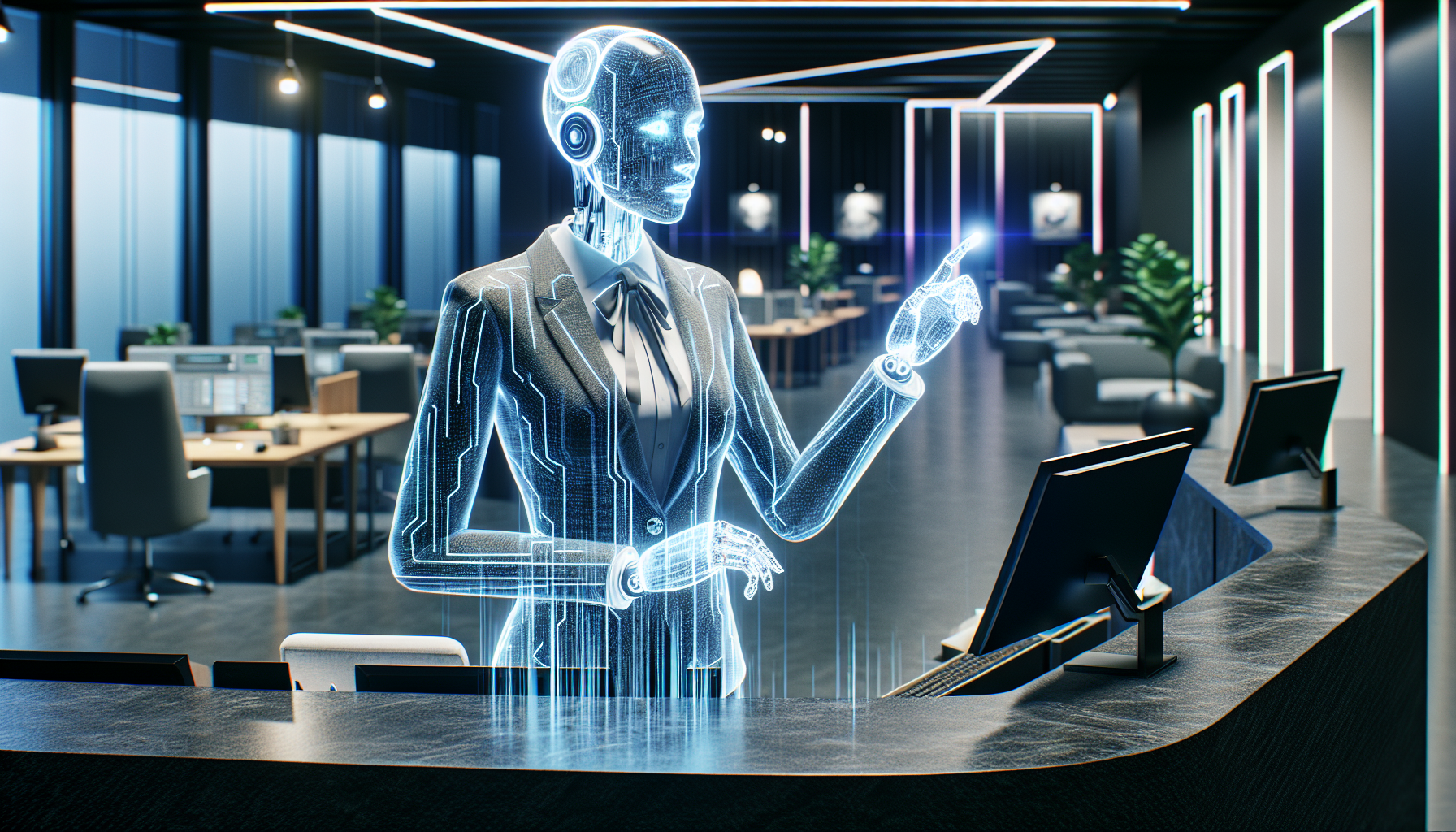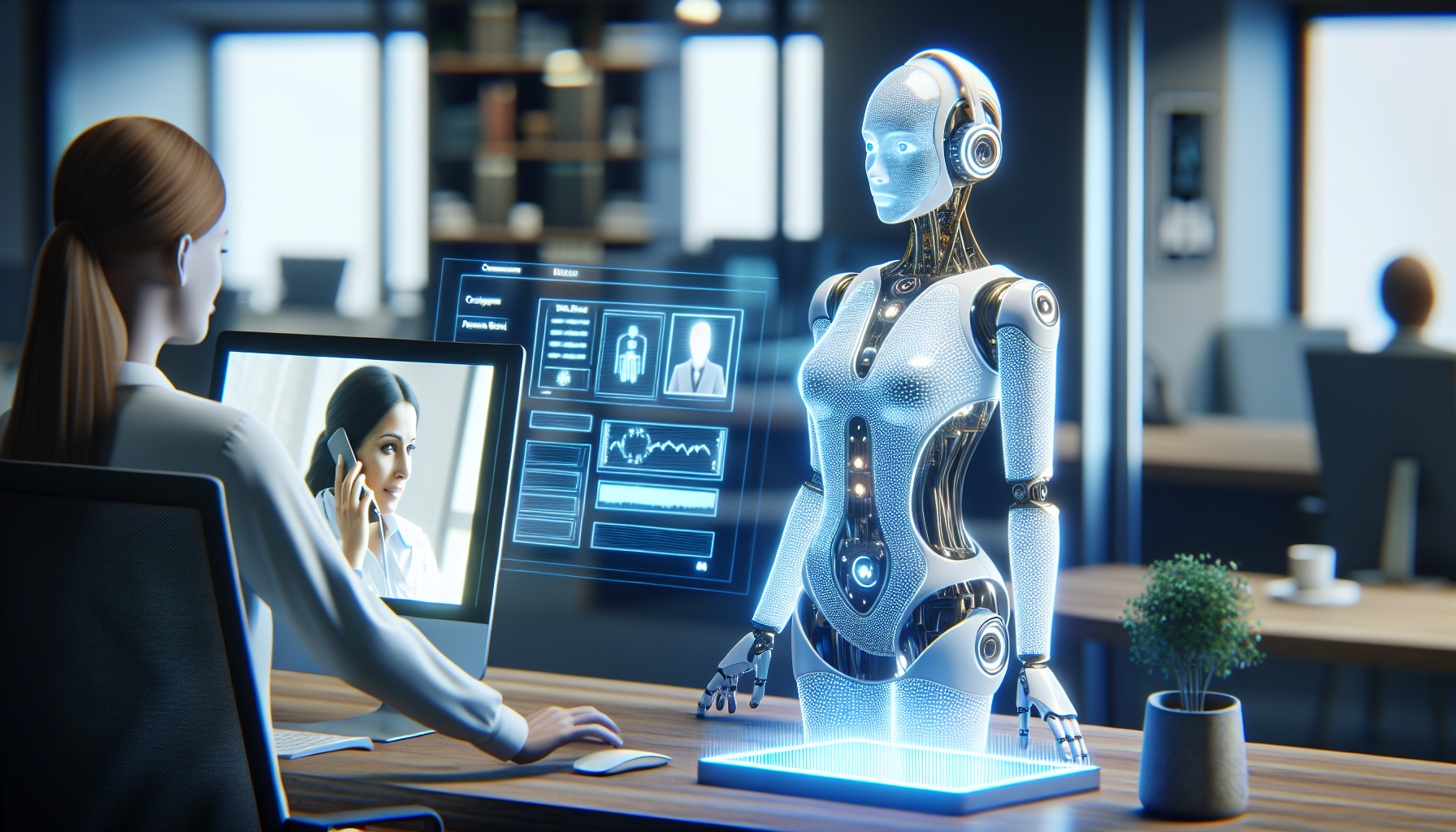
As workplaces continue to evolve in response to globalization and technological advancements, the notion of job design and execution has taken yet another twist. Enter AI Receptionists; a disruptive innovation showing compelling promise and adaptability in diverse business scopes. An AI receptionist is an automated system powered by artificial intelligence and natural language processing technologies to perform tasks typically done by human receptionists. These tasks include answering calls, setting appointments, forwarding messages and often integrating these functionalities into modern Customer Relationship Management systems.

In the vibrant context of the gig economy, AI receptionists offer a modern way for companies to streamline service delivery and improve productivity. They provide round-the-clock cover without the need for downtime or sick leaves and handle simultaneous interactions with no compromise on service quality. More importantly, they eliminate the geographical constraint of having an in-house receptionist, making it easier for businesses to operate from anywhere.
Several innovative tech-based firms are embracing AI receptionists, appreciating not just their efficiency, but also their cost-saving potential. Hiring an AI receptionist is a cost-effective solution to traditional receptionist roles, alleviating the need for workspace, insurance, and other contracted employee benefits.
As traditional job roles are seeing a transformation, the rise of AI receptionists indicates a new era of remote work. This technology-fueled reimagining of conventional professions is not just a trend but more of an imminent reality brought upon by the shift to a more digital, connected, and automated world.
In today’s fast-evolving gig economy, independent contractors, freelancers, and remote workers are becoming increasingly prevalent. In line with this trend, newer technologies are stepping up to support this movement, with
Artificial Intelligence (AI)-powered receptionists standing out as a particularly valuable development.
AI Receptionists are digital interfaces that perform the tasks of traditional receptionists, such as greeting visitors, answering phones, scheduling appointments, and even responding to emails. These AI-powered systems promise increased efficiency, flexibility and scalability, making them an attractive solution for businesses of all sizes and individuals alike.
AI receptionists lend themselves well to the gig economy due to their flexibility. With these systems, businesses can scale up or down their receptionist needs based on demand, much in the same way that freelancers scale their services based on the number of clients or projects they have. This helps businesses avoid the costs and commitments associated with traditional full-time employment structures, making things more cost-effective and adaptable to sudden changes in demand. AI in the gig economy encourages this shift by providing tailored virtual solutions in real-time, optimizing operations significantly.
Moreover, these AI receptionists cater to a 'work from anywhere' model, popular in the gig economy. Many of these virtual receptionists can operate completely remotely, with no need for physical office space. This makes them a perfect fit for freelancers who often work from home or in co-working spaces.
In conclusion, the inclusion of AI-powered receptionists in the ever-expanding gig economy is reshaping the notion of traditional workplaces and employment structures. Changes of this magnitude often come with challenges, but the opportunities they present point to an exciting future of work, especially for those in the gig economy. The ground-breaking influence of AI suggests a new era of remote work and it will be fascinating to see how businesses, freelancers, and workers of all kinds adapt to the change.
As the gig economy continues to thrive, more businesses globally are embracing the dynamic world of remote work. The advent of technological advancements like the Artificial Intelligence (AI) receptionists is steadily transforming the work landscape. This emerging technology tools are presenting a plethora of opportunities not only for businesses but also for remote workers.

Primarily, AI receptionists such as Clara and Zirtual enhance communication and task management. They automate scheduling, email management, and other mundane tasks, thus enabling remote workers to focus more on their core responsibilities. The sophisticated AI technology effortlessly manages interactions across different time zones, ensuring seamless,and efficient communication at all times, essentially breaking geographical barriers. This fosters a work culture that is productive, reliable, and accommodating for both companies and workers alike.
In the gig economy where flexibility is key, AI receptionists are invaluable. They support a synergistic balance between work and personal life by allowing remote workers to operate on flexible schedules. By digitizing tasks that would previously require manual input or real-time presence, AI receptionists allow workers to work when they want, where they want.
Beyond task management, AI receptionists can learn and adapt to the specific preferences and needs of individual remote workers. These AI's tailor their services to offer personalized assistance, making remote work more manageable, productive, and engaging.
With AI receptionists, we're witnessing the dawn of a new era in the gig and remote workforce. An era set to bring about unprecedented changes in the way we work, reshaping communications, and task management. Their increasing adoption signifies their substantial potential and their role in revolutionizing the future of work.
As we continue to leverage innovative solutions like AI receptionists, the prospect for remote work has never been more exciting. A new era of remote work has begun.
The advent of AI receptionists is revolutionizing the gig economy, presenting profound benefits to gig workers. Central to these benefits are increased job opportunities, enhanced work flexibility, and a significant reduction in administrative burdens.
In the new era of remote work, gig workers can tap into a pool of opportunities made available through AI receptionists. These intelligent programs are equipped to carry out various tasks, such as customer service and administrative duties. Their versatility opens up more opportunities for gig workers, enabling them to expand their skillset and diversify their income streams.
The flexibility of gigs is another significant benefit. With the deployment of AI receptionists, gig workers no longer need to be tied down by mundane tasks. These intelligent bots can manage routine operations, enabling workers to have more control over their schedules and work from anywhere. This flexibility is a game-changer, empowering workers to own their time while still delivering efficient service.
Reducing administrative burdens is another advantage brought by AI receptionists. Traditionally, freelancers and gig workers have had to handle administrative tasks as part of their jobs. From scheduling to follow-ups and data management, these tasks can be time-consuming. AI receptionists are here to change that, taking care of these duties and freeing up the workers to focus on their primary, revenue-generating tasks.
In conclusion, the rise of AI receptionists is an exciting evolution in the gig economy. By providing more job opportunities, flexibility, and reduced administrative burdens, these intelligent programs are making gig work more attractive and efficient than ever before.
As the landscape of work transitions in the era of gig economies, integrating AI receptionists into businesses is not without its challenges. The primary difficulties involve trusting AI with customer interactions and the technology learning curve for workers in the gig economy.

AI learning algorithms rely heavily on data inputs to understand customer context and respond appropriately. As such, reliance on prepared scripts and structured data can leave AI receptionists stumped by interactions that deviate from the norm. Thus, gig workers tasked with interfacing with AI receptionists can have their patience tested in the early stages of integration.
Fortunately, overcoming resistance to change and becoming more adaptable to AI influences in the workplace can positively accelerate the transition. One vital adaptation is the need for continuous learning and upskilling. Enhancing one's expertise to align with the evolving tech-centric requirement of the gig economy can only lead to better interoperability with AI systems.
Businesses, on the other hand, can drive successful integration by leaning into transparency. Communicating openly about AI receptionists—their purposes, capabilities, and limitations—can foster trust and cooperation. Businesses can also invest in phased integration and training workshops to guide workers and customers alike in interacting with AI receptionists.
In conclusion, the integration of AI receptionists into the gig economy may initially present challenges in trust and adaptation. However, with the right strategies in place and a dedication to continuous learning, these hurdles can be transformed into stepping stones towards the successful digitization of customer interactions and service optimization in the highly competitive gig economy landscape.
As we look to the future, the role of AI Receptionists in shaping the gig economy and remote work scenarios is poised to be transformative. The integration of artificial intelligence into daily work routines is on an upwards trajectory, and advancements in AI technologies are expected to redefine gig economy and remote work environments significantly.
One of the potential shifts, stimulated by the proliferation of AI Receptionists, is the decentralization of the workspace. Remote work is becoming the new normal, and AI-driven technologies, like AI Receptionists, are facilitating this transition. Sophisticated AI systems could potentially manage administrative tasks, schedule appointments, and handle customer inquiries, making remote work more manageable and efficient.
Beyond contributing to workspace decentralization, AI Receptionists could also generate a wave of gig opportunities providing enhanced flexibility. Experts anticipate a shift in traditional employment norms, envisaging a world where professionals juggle multiple gigs powered by digital platforms. AI Receptionists could be instrumental in managing these complex schedules and tasks, thereby fostering a more flexible work culture.
Moreover, the rise of AI Receptionists might revitalize the gig economy by creating new, tech-centric roles. These roles would focus on developing, maintaining, and enhancing the AI technologies. Consequently, it implies both the creation of gigs for AI specialists and the necessity of continuous learning and upskilling for professionals navigating the gig economy.
To sum it up, the emergence of AI Receptionists seems to signal a new era in gig economy and remote work, characterized by decentralization, flexibility, and continuous learning. The sophisticated integration of artificial intelligence into daily workflows might not just redefine the future of work but also restructure socio-economic settings at large.
Start your free trial for My AI Front Desk today, it takes minutes to setup!








